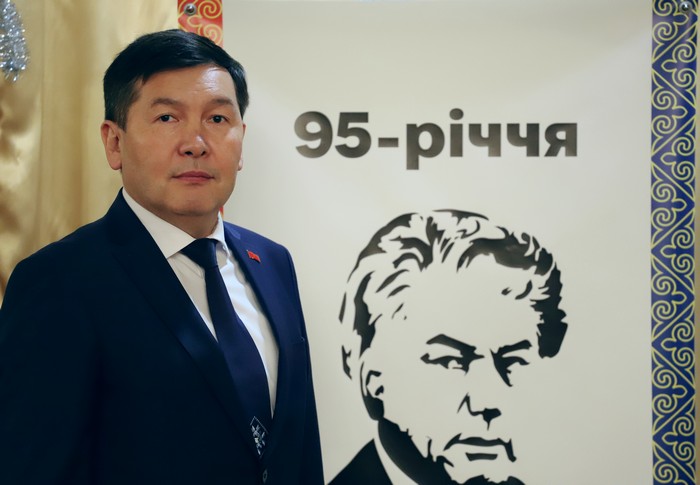Chingiz Aitmatov: peaks of creative and diplomatic activity
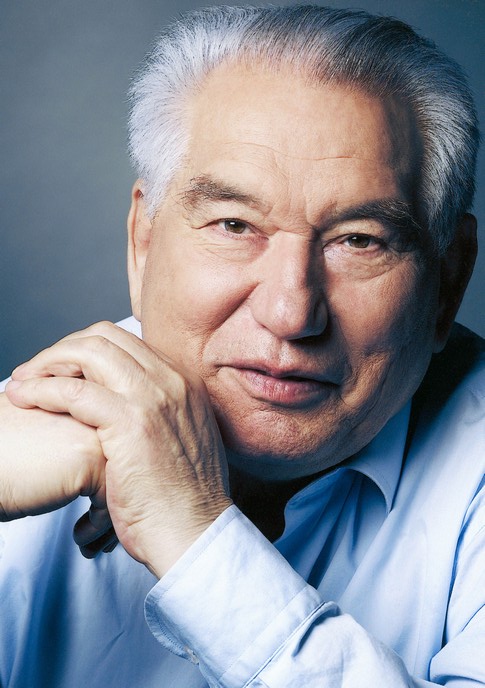
The hardest thing for a person is to be a person everyday.
Chingiz Aitmatov
This year marks the 95th anniversary of Chingiz Aitmatov, a globally renowned humanist author. His impact on world literature is substantial, with translations of his works available in 179 languages and a total circulation exceeding 80 million copies. Presently, he holds the distinction of being the second most widely read author, trailing only Shakespeare and Leo Tolstoy.
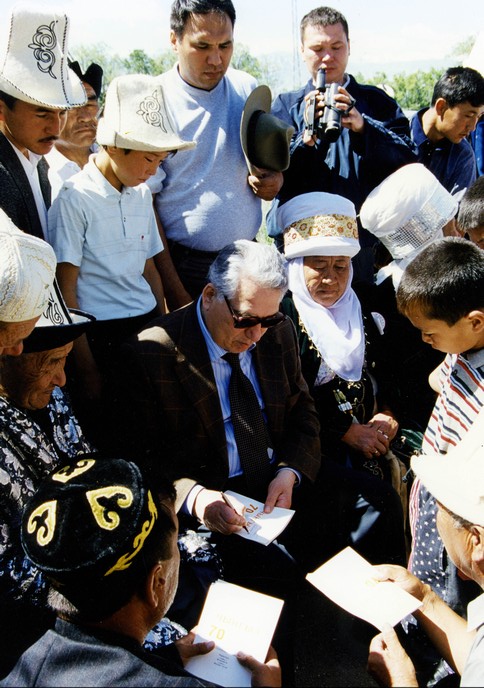
The esteemed poet Rasul Gamzatov once expressed, "If someone asks about your identity, present your passport; if they inquire about your origin, speak of the great people of your country." As Kyrgyz individuals, we take pride in hailing from the magnificent mountains of Manas the Magnanimous, with the splendid Issyk-Kul as our landmark. When asked, I proudly declare, "I am from Kyrgyzstan, the homeland of Chingiz Aitmatov." Through him, the world came to know us, the Kyrgyz.
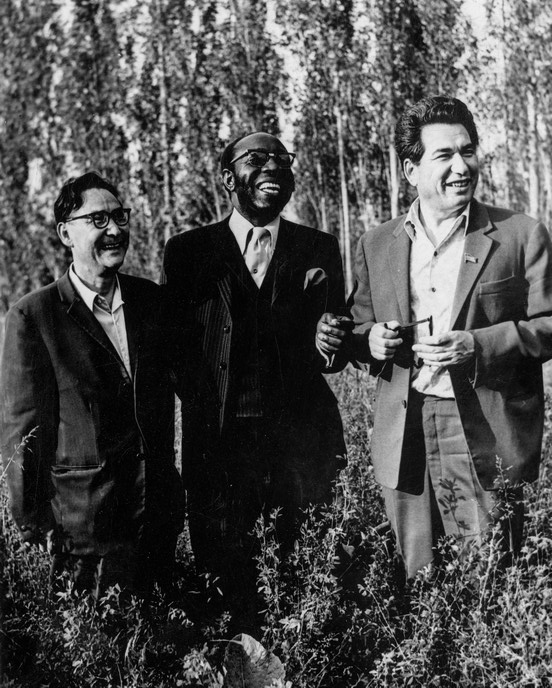
Undoubtedly, Chingiz Aitmatov is a globally acknowledged figure. However, his contributions extend beyond writing; in the final years of his life, he demonstrated exceptional skills as a diplomat and politician.
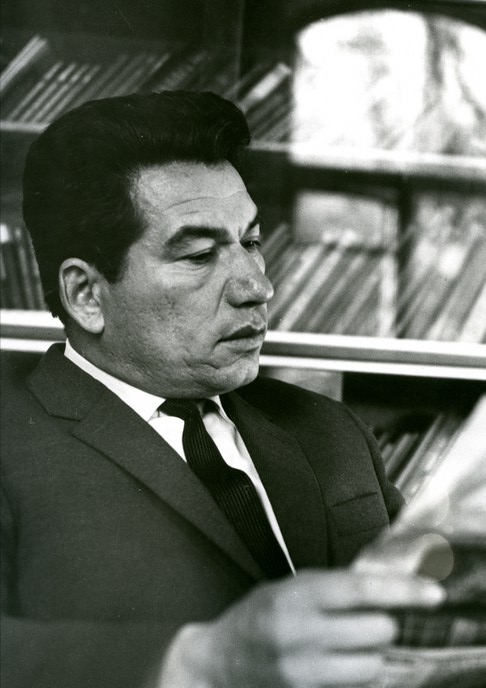
Aitmatov's diplomatic prowess was deeply rooted in his knowledge, personal attributes, and business acumen. His diplomatic effectiveness was shaped by qualities such as personal responsibility, a steadfast civic stance, a commitment to serving the country, extensive education, broad knowledge, a curiosity about other civilizations and cultures, analytical skills, a keen awareness of global events and trends, inventive problem-solving, and an understanding of social and political processes. A diplomat transforms analytical insights into official documents, while a writer translates them into artistic expressions. Global trends indicate that the shift from diplomatic roles to writing is more common than writers transitioning into actual diplomatic roles.
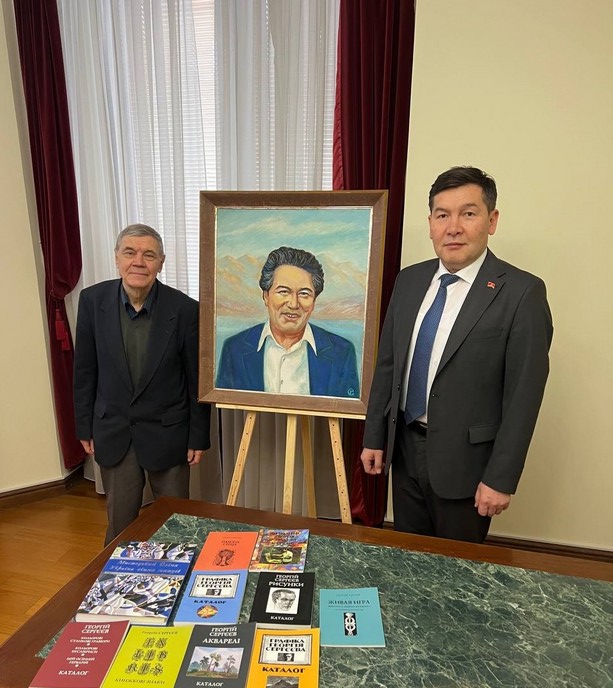
During his period of creative ascent and global renown, Aitmatov was extended an offer to join the diplomatic service. At that juncture, there was a pressing need to infuse the foreign policy sphere with fresh talent and exhibit to Western partners a new, compassionate facet of diplomacy. Chingiz Torekulovich, recognized for his humane perspectives, as a prominent figure in world culture, and an ardent advocate for peace and civilized international communication, was fittingly selected for this diplomatic role. This strategic approach is commonly interpreted as "soft diplomacy," involving the use of "soft power" in international relations, and in the case of the writer, it proved highly apt.
In the realm of foreign policy, it was anticipated that Aitmatov's education, popularity, and balanced decision-making, inherent to his character, would form the fundamental basis for the successful execution of his diplomatic mission. Reflecting on his experiences, Chingiz Aitmatov recalled an amusing incident: "A Japanese dish was served at the reception. On a large platter, there was exotic and inexplicable food artistically arranged with flowers. Assuming that anything placed on the table was edible, I even consumed the flowers! It dawned on me that they were meant for decoration. I chuckled at my own curiosity. Perhaps, not everyone in a diplomatic career would readily admit to such quirks."
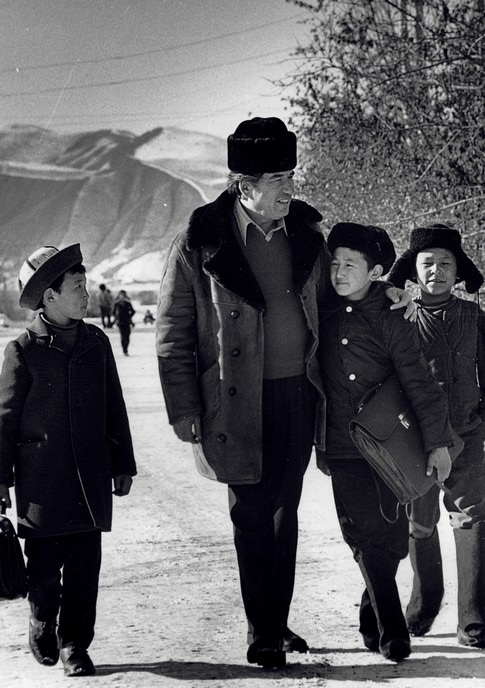
In the 1990s, Aitmatov assumed leadership of the USSR diplomatic mission in Luxembourg, subsequently becoming the ambassador of the Kyrgyz Republic to Belgium, Luxembourg, the Netherlands, and France. Following this, he was elected the permanent representative of Kyrgyzstan to the European Commission, NATO, and UNESCO simultaneously. His commitment to diplomatic service spanned approximately 20 years. Additionally, the writer was elected multiple times as a deputy of the Supreme Soviet of the USSR.
Aitmatov's authority was well-deserved, earning him recognition as a top-tier specialist and a true professional. This sometimes led to envy among certain officials. In expressing his perspective on diplomacy, Chingiz Torekulovich remarked, "I will not say that I am such a brilliant diplomat... Diplomacy, for many, is understood as some kind of obligatory artifice... I always act openly, honestly, sincerely." The culmination of his creative and diplomatic endeavors resulted in the establishment of the international intellectual movement known as the 'Issyk-Kul Forum.'
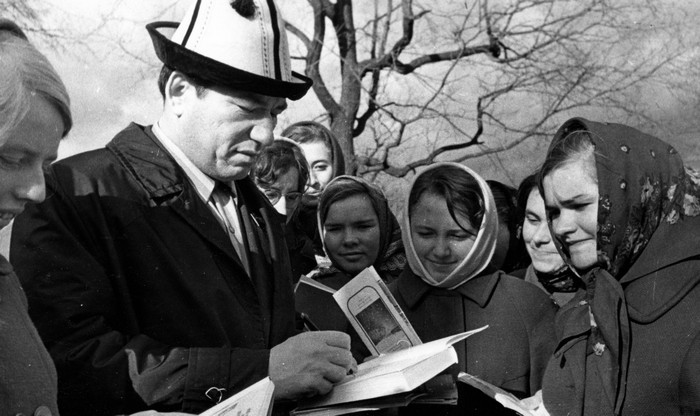
A glance at the recent past reveals a noteworthy gathering in October 1986, where eighteen eminent artists convened on the shores of Issyk-Kul, Kyrgyzstan's 'pearl.' These individuals, prominent in literature, culture, and art, engaged in discussions on pressing global issues expected to arise in the 21st century. The deliberations led to a decision to designate the upcoming century as the "Century of the Planet" or the "Century of Creativity." The direct dialogues and discussions during these meetings gave rise to the innovative concept of preparing the third millennium as a period of peace, humanism, and creativity, guided by the slogan "Survival through creativity."
This marked the inception of a fundamentally new planetary thinking, serving as a tool for addressing future challenges facing humanity. The discussions emphasized that human values transcend ethnic and national interests. The second Issyk-Kul Forum, hosted by the renowned writer in 1997, continued this global discourse. Prominent figures and intellectuals, including UNESCO Secretary General Federico Mayor, leaders of nations, and notable political and public figures, were invited. The central theme of the forum was "Global and national aspects of culture in the 21st century," with Chingiz Aitmatov delivering a keynote speech. The writer highlighted the increasingly dominant role of national cultures in human civilization's development, emphasizing the need to steer this multifaceted process in a constructive direction.
Following the passing of Mayor in 2008, subsequent forums took place without his presence. Participants unanimously emphasize the imperative of unequivocally fulfilling the calls and resolutions from those initial forums, as the issues discussed remain pertinent and require collective implementation. These concerns encompass peace, conflict resolution, educational development, cultural and artistic advancement, as well as the cultivation of national spirit and self-identity. Recognition of diverse denominations and currents remains crucial.
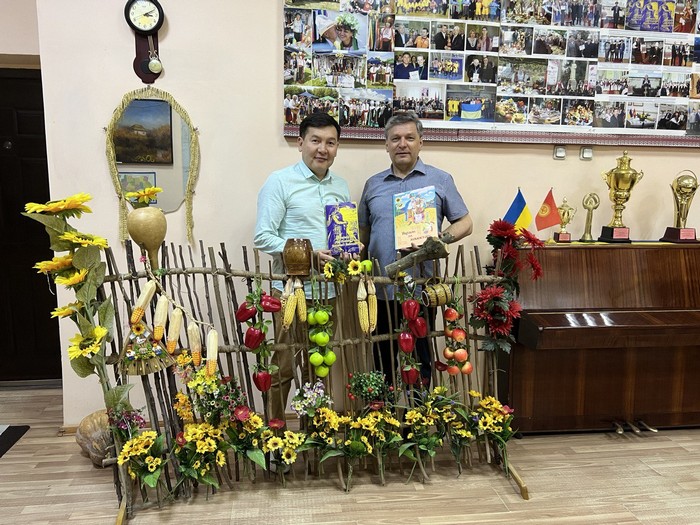
Turning attention to Chingiz Aitmatov's body of work, his writings and the sentiments encapsulated within them resonated widely. It would not be an exaggeration to assert that, alongside other brilliant writers across different cultures and eras, Aitmatov, as a philosopher, thinker, and artist, embodies the inner world of the modern person — encompassing mind and soul. His works exalted the potency of human intellect, its enduring nature, and its profound international impact.
Aitmatov's literary legacy continues to captivate audiences into the 21st century. Numerous scholarly works dedicated to Aitmatov have emerged, authored by scientists, writers, prose writers, linguists, and translators from around the globe. As someone moved by his contributions, I, too, felt compelled to express my feelings and thoughts on paper to commemorate him on his anniversary.
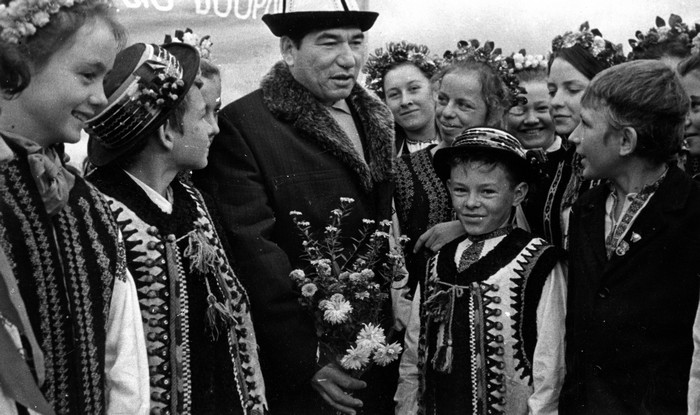
As a writer and thinker, Chingiz Aitmatov is both simple and profound, remaining beloved and accessible to all. His writing, expressed in straightforward language, captures the timeless and often complex issues of human existence, interpersonal relationships, society, systems, and the state, embodied in incredible artistic images. Aitmatov's diverse works, including short stories, novellas, and novels, consistently prompt readers to listen, experience, think critically, reflect, and arrive at meaningful conclusions. They compel us to contemplate the essence of genuine humanity, the highest purpose of an individual, and the meaning of life—enduring and universal concerns that preoccupied Aitmatov and continue to resonate with us today.
Addressing historical and existential questions, Aitmatov achieved monumental artistic and philosophical insights. He emerged as a guiding light in navigating the complexities of human experience, vehemently condemning evil, deceit, baseness, lust for power, tyranny, meanness, and betrayal.
Throughout his works, Aitmatov delved into societal issues and individual struggles, exploring themes of human freedom, freedom of thought, national spirit, and the irreconcilable battle between good and evil. Aitmatov elevated defenders of justice and individuals with noble traits as heroes, emphasizing courage marked by deeds, conscience, and genuine love. Today, as always, we admire the richness of life in the iconic characters he created, characterized by innate humanism, compassion, purity of thought, and the spirit of heroism.
Chingiz Aitmatov's characters are distinguished by their depth and complexity, prompting not only myself but all readers to marvel at his genius and realistic skills—the hallmark of the greatest writer of our time. Each character in his works is uniquely individual, whole, passionate, and possesses a purity and brightness that resonates.
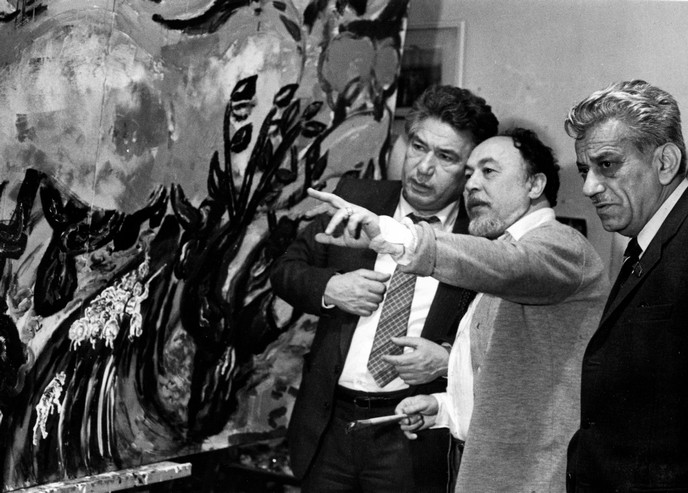
In works like "Jamil," "The First Teacher," "Maternal Field," "Farewell, Gulsary," "The White Steamer," "And the day lasts longer than a century," "Polakha," "Tavro Kassandra," and "When the Mountains Fall (Eternal the Bride)," Aitmatov delves into the essence of humanity, portraying the joys and experiences of his characters. Reading his works feels like living life alongside them, and we recognize ourselves within these narratives.
Aitmatov's exploration of totalitarianism, depicted in novels like "And the Day Lasts Longer than the Age," remains relevant today. He emphasizes that the descent into a totalitarian state can be swift, but the journey out of it is prolonged and demanding, exacting significant moral, spiritual, and physical costs. Overcoming totalitarianism, according to Aitmatov, demands substantial human sacrifices. Chingiz Aitmatov's final novel, "When Mountains Fall," penned in 2006, has already found translation in Europe, although it awaits translation in Ukraine. Strictly speaking, this contemporary book delves into the themes of globalization and the individual's destiny.
Aitmatov's entire creative legacy stands as one of the finest examples in world literature. As a writer, philosopher, and thinker, he captivated the entire planet with his creative prowess. As a novelist, he elevated modern world literature to new heights of philosophical and artistic depth. The issues explored in Chingiz Aitmatov's works harmonized with the literary rhythm of his time, where the writer candidly expressed his pains, reflections on global and human problems, and his dreams for human virtues that should be emphasized in the new era. It is worth highlighting Aitmatov's connections with Ukraine. He held a deep affection for Ukraine and maintained friendships with Ukrainians. In 1954, well before he gained literary acclaim, while working as a zootechnician at an experimental farm of the Kyrgyz Institute of Animal Husbandry, he admired the resilience and hard work of Ukrainian agricultural workers through the pages of the republican press. He emphasized the importance of establishing strong ties and learning from the best Ukrainian practices in various agricultural sectors.
In his later years, Chingiz Aitmatov frequently visited Ukraine, where he cultivated many friendships. Notably, he enjoyed engaging in long conversations with ordinary people, possibly collecting impressions for characters in his future works.
Chingiz Torekulovich was renowned for his ability to make friends and genuinely attend to their concerns. He maintained numerous friendships among the creative intelligentsia and diplomats in Ukraine, a place he visited with great pleasure. Aitmatov also had many friends in Kyiv, including the Ukrainian writer, publicist, and public figure Oles Gonchar, with whom he frequently exchanged ideas about new works. As noted by the writer's friends, Chingiz Aitmatov was a true friend of the Ukrainian people and visited Kyiv on various government and diplomatic missions. Notably, he participated in the celebration of the 1500th anniversary of Kyiv. Aitmatov held deep admiration for Ukrainian culture and literature, and thanks to his efforts, numerous works of Ukrainian literature were translated and published in the Kyrgyz language.
To the best of my knowledge, nearly all the works of this brilliant Kyrgyz writer reached Ukrainian readers in their native language. Credit is due to Doctor of Philology, Professor Mykola Vaskiv and to Volodymyr Naroza, head of the Council of the Ukrainian Society of the Kyrgyz Republic, for translating Aitmatov's late works into Ukrainian. The ideas of humanism, universal human values, and tolerance that permeated Chingiz Aitmatov's work and life are especially relevant today. His ability to expose the cruel and inhumane nature of war is evident in works like "Maternal Field," where he protests against violence. Through Tolgonai's dialogue with Mother Earth, Aitmatov conveys the collective anguish of all women throughout history who lost loved ones and children in the brutality of war.
"Don't kill!" emerges as the central commandment in the novel "When Mountains Fall." The soldier heading to the front lines against the fascists reflects on his parents' admonition, grappling with the ethical question of whether he has the right to take another person's life. In the present day, the world requires an urgent dialogue between civilizations and cultures, with diplomats, intellectuals, and thinkers playing pivotal roles. The foundational principle of contemporary discussions should be the absolute rejection of even the thought of war, the impermissibility of using force to resolve life's challenges, and the necessity to find mutually acceptable compromises, echoing Aitmatov's call.
In summary, the great writer Chingiz Aitmatov appreciated the power of literature, believing it could combat indifference and selfishness. He also adeptly understood and utilized diplomacy as a means of fostering unity among people. This pursuit of harmony extended to various realms, such as the balance between empire and national identity, the coexistence of humanity and nature, and the reconciliation of diverse peoples and religions. Undoubtedly, Aitmatov was a global citizen, open to the world as a sage, humanist, and bridge between cultures. It is perhaps this quality that continues to draw us to him even today.
Idris Kadyrkulov,
Ambassador Extraordinary and Plenipotentiary
of the Kyrgyz Republic to Ukraine,
Photos provided by the Embassy of Kyrgyzstan in Ukraine.
